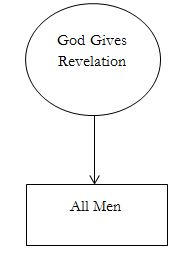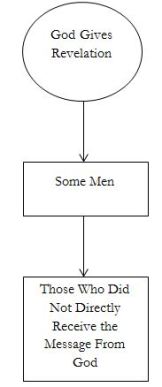When the Fullness of the Time Came
In his letter to the Galatians, Paul wrote a line quoted often around Christmastime.
But when the fullness of the time came, God sent forth His Son, born of a woman, born under the Law, so that He might redeem those who were under the Law, that we might receive the adoption as sons. Galatians 4: 4 – 5
Regarding the phrase “the fullness of the time”, there is both a general and specific way to understand it. Generally speaking, the commentary of John Calvin is helpful.
That season is the most fit, and that mode of acting is the most proper, which the providence of God directs. At what time it was expedient that the Son of God should be revealed to the world, it belonged to God alone to judge and determine.1
John is essentially saying “If God says it is the fullness of the time, then it is”. Now this is true – God is sovereign over all things and He directs the times and epochs of man. But there is perhaps a more specific understanding one can take from Paul’s words to Galatia. In addition to understanding Paul’s words as a general declaration of God’s sovereignty, we can specifically define “the fullness of the time” as the convergence of two Old Testament prophecies. In the ninth chapter of the book of Daniel, the angel Gabriel gives Daniel the rubric for calculating the time of the Messiah. In the fifth chapter of the book of Micah, God has the prophet declare where the Messiah would be born. We can in this way understand the fullness of the time to mean that Christ was born when His mother was in the right place at the right time.
To be a little more precise with Gabriel’s words, his prophecy is thought not to relate to the birth year of Christ but the year when He presented Himself as Messiah. Volumes have been written on this prophecy and how to perform the calculation, but the point for us now is to understand that this prophecy creates a window of time in which Jesus had to be born. Logically, if it can be precisely calculated when the Messiah presents Himself as King, we can then go backwards in time to estimate the year of His birth.
Returning to the aforementioned sovereignty of God, it is noteworthy that He brought about the fulfillment of Gabriel’s and Micah’s prophecies using the decrees of pagan rulers. Gabriel told Daniel that the start of the Messianic countdown was “from the issuing of a decree to restore and rebuild Jerusalem”. This decree occurred during the days of the Jewish exile, when they were subjected to foreign powers. First, God moved Cyrus to order a rebuild.
Now in the first year of Cyrus king of Persia, in order to fulfill the word of the LORD by the mouth of Jeremiah, the LORD stirred up the spirit of Cyrus king of Persia, so that he sent a proclamation throughout all his kingdom, and also put it in writing, saying: “Thus says Cyrus king of Persia, ‘The LORD, the God of heaven, has given me all the kingdoms of the earth and He has appointed me to build Him a house in Jerusalem, which is in Judah.’” Ezra 1: 1 – 2
When the people returned under Cyrus’ decree, they began to rebuild the temple, but their work ceased for a time in the midst of opposition. Then, God caused another pagan ruler to make another decree.
Now this is the copy of the decree which King Artaxerxes gave to Ezra the priest, the scribe, learned in the words of the commandments of the LORD and His statutes to Israel: “Artaxerxes, king of kings, to Ezra the priest, the scribe of the law of the God of heaven, perfect peace. And now I have issued a decree that any of the people of Israel and their priests and the Levites in my kingdom who are willing to go to Jerusalem, may go with you. Ezra 7: 11 – 13
This decree in Ezra is one of the leading candidates of the start of the Messianic timeline. There is another decree from the same king that is also a candidate, found in Nehemiah.
And it came about in the month Nisan, in the twentieth year of King Artaxerxes, that wine was before him, and I took up the wine and gave it to the king. Now I had not been sad in his presence. So the king said to me, “Why is your face sad though you are not sick? This is nothing but sadness of heart.” Then I was very much afraid. I said to the king, “Let the king live forever. Why should my face not be sad when the city, the place of my fathers’ tombs, lies desolate and its gates have been consumed by fire?” Then the king said to me, “What would you request?” So I prayed to the God of heaven. I said to the king, “If it please the king, and if your servant has found favor before you, send me to Judah, to the city of my fathers’ tombs, that I may rebuild it.” Then the king said to me, the queen sitting beside him, “How long will your journey be, and when will you return?” So it pleased the king to send me, and I gave him a definite time. And I said to the king, “If it please the king, let letters be given me for the governors of the provinces beyond the River, that they may allow me to pass through until I come to Judah, and a letter to Asaph the keeper of the king’s forest, that he may give me timber to make beams for the gates of the fortress which is by the temple, for the wall of the city and for the house to which I will go.” And the king granted them to me because the good hand of my God was on me. Nehemiah 2: 1 – 8
As earlier stated, there has been much written over the years about the calculation and which decree it is based on. But for us now we need to realize that it created a window of time for the Messiah to be born. Regarding that window, when it had arrived, the virgin Mary lived in Nazareth, which is not the town Micah spoke of. In order to fulfill Micah’s words, God caused Caesar to decree that a census should be taken, thus causing Mary to travel with Joseph from Nazareth to Bethlehem.
Now in those days a decree went out from Caesar Augustus, that a census be taken of all the inhabited earth. This was the first census taken while Quirinius was governor of Syria. And everyone was on his way to register for the census, each to his own city. Joseph also went up from Galilee, from the city of Nazareth, to Judea, to the city of David which is called Bethlehem, because he was of the house and family of David, in order to register along with Mary, who was engaged to him, and was with child. While they were there, the days were completed for her to give birth. Luke 2: 1 – 6
“While they were there, the days were completed for her to give birth.” These words of Luke echo Paul’s words “when the fullness of the time came”. What a beautifully understated way to convey the birth of Christ. The simplicity of the statement ought not to be taken for granted – for the birth of Christ was not a simple event. It was highly orchestrated, developing over thousands of years, announced beforehand through the mouths of the Jewish prophets, and advanced by God through the decrees of Gentile kings.
What has been looked at here is but the tip of the tip of the tip of the iceberg. There is so much more contained within the annals of history regarding God’s ordering of history to bring about the birth (and death and resurrection) of Christ. For the Christian, to wonder and delight in such things is not merely a once-a-year event in December, but a life-long endeavor of joy, as we ponder the God who came into human history to love a people who hated Him and to save a people who rejected Him. Paul’s words to the Galatians are worth repeating.
But when the fullness of the time came, God sent forth His Son, born of a woman, born under the Law, so that He might redeem those who were under the Law, that we might receive the adoption as sons. Galatians 4: 4 – 5
1John Calvin, “Commentaries on the Epistle to the Galatians”, Calvin’s Commentaries Volume XXI (Michigan: Baker Books, 2005), 118.

